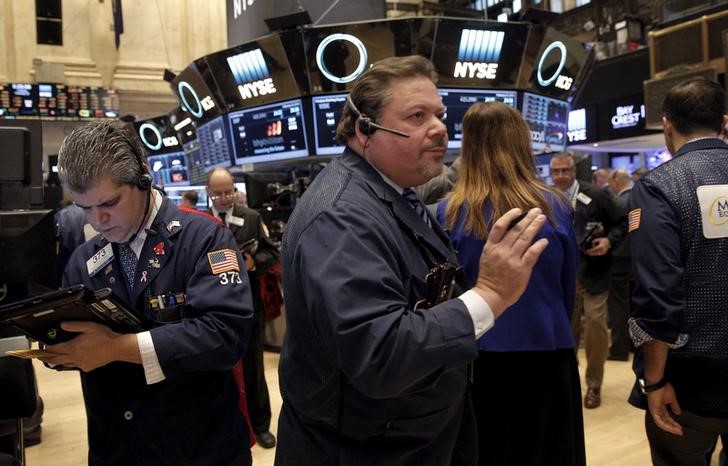By Freya Berry
BERLIN (Reuters) - As anxiety over a slowing global economy grows, private equity players are looking to swoop on distressed assets but are fearful that funding could dry up.
A record number of delegates from private equity firms and investors turned out this week for four days of networking at SuperReturn in Berlin, the industry's main annual gathering.
At first glance a number of glitzy afterparties suggested the good times were continuing to roll as they have in the years following the financial crisis.
But faced with upheaval in global asset markets, political uncertainty and a tougher debt environment, the sense was that the music could soon stop.
"It's not doom and gloom among the GPs (general partners)," one large investor said, referring to the private equity companies whose job it is to buy businesses.
"But they're not popping the champagne. People are trying to get fundraising done now before the environment changes," he added.
The plunge in oil and gas prices weighed on the minds of many. One executive who was raising money for a major oil investment vehicle told Reuters that the fund was considering cutting its target size due to caution from potential investors.
He said this was frustrating at a time when a mass of assets are coming to the market as energy companies seek to cut their losses.
And the oil price plunge is also being felt in efforts to raise money for investment.
"Saudi Arabia is dead," for fundraising, one placement agent said.
DEBT TROUBLES
Funds said that a backlog in U.S. debt markets was limiting deal flow. Private equity firms often takes on debt to help boost their firepower and potential returns when they sell out, typically four to six years later.
But concerns over record asset price multiples, and the hefty debt packages that they entail, are finally starting to tell. There were just 51 leveraged buyout deals globally last year, the lowest since 2010, according to Thomson Reuters data.
The biggest leveraged buyout of 2015, Carlyle's (O:CG) $8 billion purchase of backup software provider Veritas from Symantec Corp (O:SYMC), saw its price cut to $7.4 billion after banks struggled to syndicate a $5.6 billion debt package backing the deal.
Debt-to-EBITDA multiples for the United States and Europe slipped last year, averaging 5.51 times EBITDA, against 5.85 times the year before. That was the first time multiples have come down since 2009, according to Thomson Reuters LPC data.
Those funds that can find capital were positioning themselves for an expected boom in distressed asset investments, spurred by the collapse in oil prices and slowing global growth.
"Any market dislocation is a good opportunity. Companies exposed to the energy supply chain where the market reaction has been overdone, like some services plays, are attractive," James Brocklebank, Managing Partner at buyout firm Advent International, told Reuters.
Other big hitters said lessons from the 2008-2009 financial crisis meant they had a clearer strategy of how to play the distressed asset market.
"One of the great lessons from the recession is to buy your or someone else's distressed debt back and make a lot of money," said David Rubenstein, co-founder and co-CEO of Carlyle (O:CG).
Others looking at opportunities outside the distressed sectors saw a survival-of-the-fittest dynamic in the rest of the market, hoping that a tougher fundraising environment and thinner debt markets would help winnow out rivals.

"We're feeling more bullish. The pricing seems to be getting better because leverage is tighter, so the competition is not so intense," Joseph Landy, co-Chief Executive at U.S. private equity firm Warburg Pincus, told Reuters.